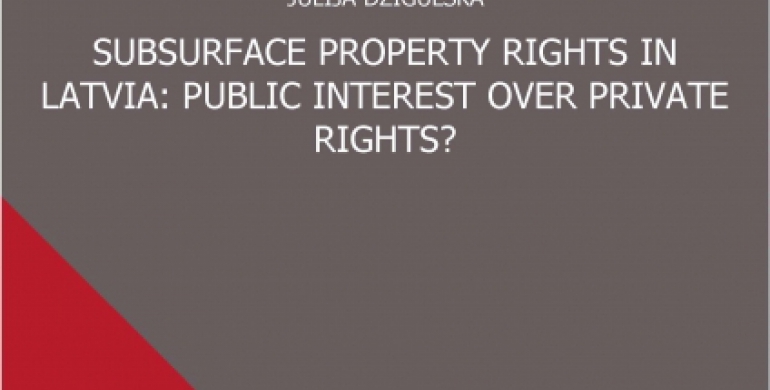Rīgas Juridiskās augstskolas "Research Papers" sērijā jauna RJA absolventes Jūlijas Dziguļskas publikācija "Subsurface Property Rights in Latvia: Public Interest over Private Rights?".
Raksta abstrakts:
Nowadays it is commonly accepted that an efficient property rights system is instrumental to economic prosperity. Yet the nations of the world have different views on the appropriate property regime for their State shaped by each nation’s history, culture, and political vision. The majority of States exercise public ownership over onshore subsurface resources, whereas the private property regime where subsurface resources belong to the landowner is nearly extinct. The US remains a major adherent of the private property regime in subsurface resources, as does Latvia amongst EU countries.
Yet, in quest of economic development, the Latvian authorities propose a legislative amendment that would vest the State with the property rights in those resources, thereby transferring property rights in the subsurface from private landowners to the State. This paper strives to determine whether the “Proposal for Improvement of Legislative Regulation on Subterranean Depths for Attraction of Potential Investment” (“Proposal”) by the Latvian government is necessary and whether it would infringe the human right to property if implemented.
The paper exposes several issues to be taken into account with the governmental “Proposal” prior to implementing legislative amendments. Firstly, the implications of potential scenarios are not sufficiently analysed in the “Proposal” from the perspective of property as a human right. This paper addresses that gap. Secondly, a legislative amendment according to the “Proposal” is likely to fall short of the criteria for lawfully taking private property rights from the constitutional and ECHR perspectives. This primarily concerns the proportionality conditions, for which the paper offers a few mitigating recommendations. Thirdly, while the legislator explores only the property regimes of other EU countries and Canada, this paper offers the US as a country for comparative analysis on the subject, so as to alleviate proportionality concerns.

